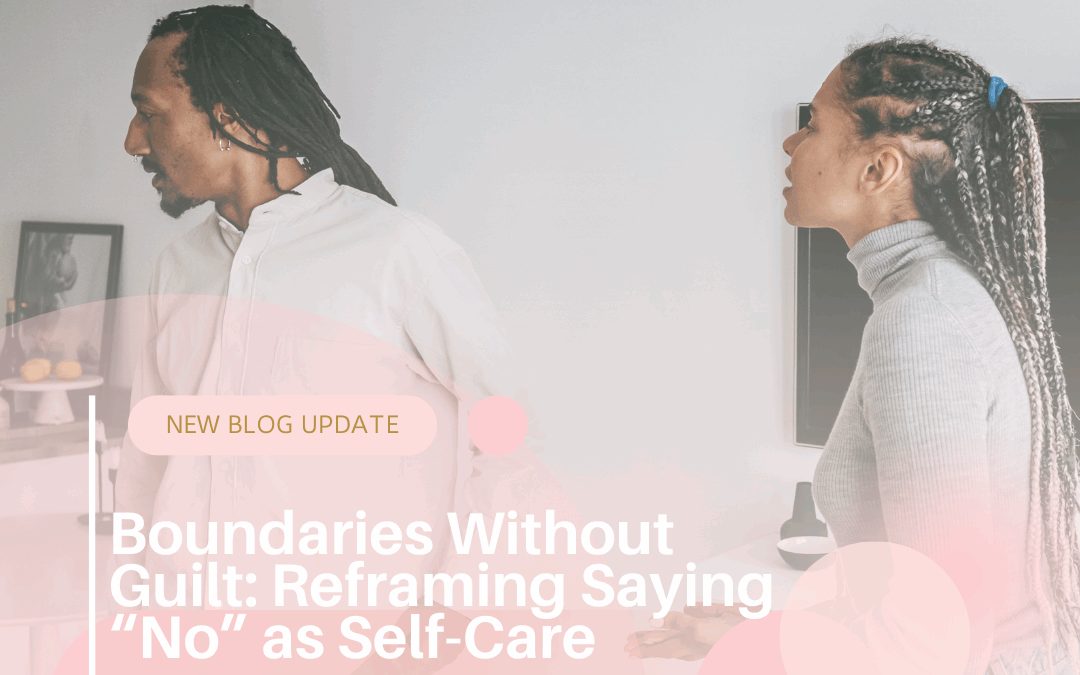Many of us have been taught to put others first, say yes to every request, and avoid conflict at all costs. While kindness and generosity are beautiful traits, always putting others ahead of yourself can come at a steep price—your own well-being.
Setting boundaries isn’t about being selfish. It’s about protecting your time, energy, and mental health so that you can show up as your best self. Learning to say “no” without guilt is one of the most powerful forms of self-care.
Why Boundaries Matter
Boundaries are the invisible lines we set to define what is acceptable and what is not in our relationships. Without them, we may:
-
Feel drained, resentful, or taken advantage of
-
Struggle with burnout from overcommitting
-
Lose sight of our own needs and values
-
Experience increased stress and anxiety
Boundaries are not walls to shut people out. They’re bridges to healthier connections built on respect and clarity.
The Guilt Trap
So why do so many people feel guilty about saying “no”?
-
Fear of disappointing others – We worry that setting limits makes us seem unkind or unreliable.
-
People-pleasing tendencies – Approval from others feels validating, even if it costs us our peace.
-
Cultural and family conditioning – Many of us grew up with the belief that self-sacrifice equals love.
But guilt doesn’t mean you’re doing something wrong. It often just means you’re breaking an old pattern and stepping into healthier behavior.
Reframing “No” as Self-Care
When you shift your perspective, saying “no” becomes less about rejection and more about preservation.
-
Saying “no” to another late-night project means saying “yes” to rest.
-
Saying “no” to a toxic relationship means saying “yes” to peace.
-
Saying “no” to an unrealistic expectation means saying “yes” to your mental health.
Each “no” opens space for what truly matters—your values, priorities, and well-being.
How to Set Boundaries Without Guilt
-
Get clear on your limits – Reflect on what drains you versus what nourishes you.
-
Start small – Practice saying no in lower-stakes situations to build confidence.
-
Use direct but kind language – Example: “I can’t commit to that right now, but thank you for thinking of me.”
-
Pause before saying yes – Give yourself permission to check in with your energy and schedule before responding.
-
Remember the bigger picture – Boundaries protect your ability to thrive, not just survive.
Final Thoughts
Boundaries are not about pushing people away—they’re about inviting in healthier, more balanced relationships. When you reframe “no” as an act of self-care, you release the guilt and embrace a life that honors your needs as much as it honors others.
Taking care of yourself is not selfish. It’s essential. And every boundary you set is a step toward a more peaceful, authentic, and resilient you.


Recent Comments